
The bipartisan Fix Our Forests Act cleared the US Senate Agriculture Committee with support from wildfire and homebuilding groups, but critics warn it could weaken environmental protections. In related news: Parks Canada confirmed the cause of the 2024 Jasper fire; Louisiana Pacific announced a partnership with the BC First Nations Forestry Council; Marks Lumber is adapting to Montana’s mill closures; and Michigan State University promotes its Forestry Innovation Center.
In other news: the Forest Products Association of Canada released a plan to defend forestry jobs in US trade talks; Google expanded its climate change strategy; NASA may turn off a key CO2-tracking satellite; Enviva works to extinguish a wood pellet fire in Mississippi; and Tolko’s former Kelowna mill site plan is reading for viewing. Meanwhile: rising inflation and widening trade deficits complicate Canada’s interest rate decision; and how Covid-19 reshaped US labour and housing demand.
Finally, Russ Clinton wins BC’s 2025 Minister’s Award for Innovation and Excellence in Woodlot Management.
Kelly McCloskey, Tree Frog News Editor
.png)
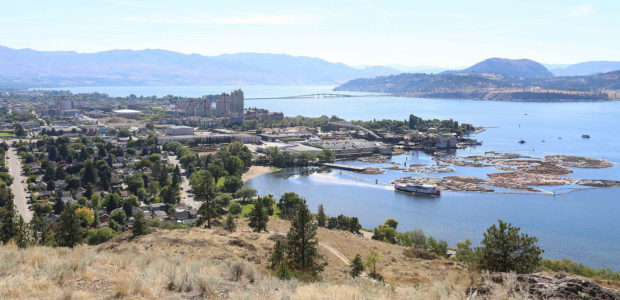
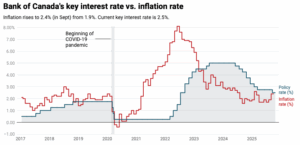 OTTAWA — Some economists say surprisingly strong September inflation figures will give the Bank of Canada pause ahead of its interest rate decision next week. Annual inflation accelerated to 2.4% last month, Statistics Canada said Tuesday. That’s a jump of half a percentage point from 1.9% in August and a tick higher than economists’ expectations. …The September inflation report will be the Bank of Canada’s last look at price data before the central bank’s next interest rate decision on Oct. 29. The central bank lowered its benchmark interest rate by a quarter point to 2.5% at its last decision in September. The Bank of Canada’s preferred measures of core inflation showed some stubbornness in September, holding above the three per cent mark. “This will make the Bank of Canada’s decision a bit more interesting next week than previously expected,” said BMO chief economist Doug Porter.
OTTAWA — Some economists say surprisingly strong September inflation figures will give the Bank of Canada pause ahead of its interest rate decision next week. Annual inflation accelerated to 2.4% last month, Statistics Canada said Tuesday. That’s a jump of half a percentage point from 1.9% in August and a tick higher than economists’ expectations. …The September inflation report will be the Bank of Canada’s last look at price data before the central bank’s next interest rate decision on Oct. 29. The central bank lowered its benchmark interest rate by a quarter point to 2.5% at its last decision in September. The Bank of Canada’s preferred measures of core inflation showed some stubbornness in September, holding above the three per cent mark. “This will make the Bank of Canada’s decision a bit more interesting next week than previously expected,” said BMO chief economist Doug Porter.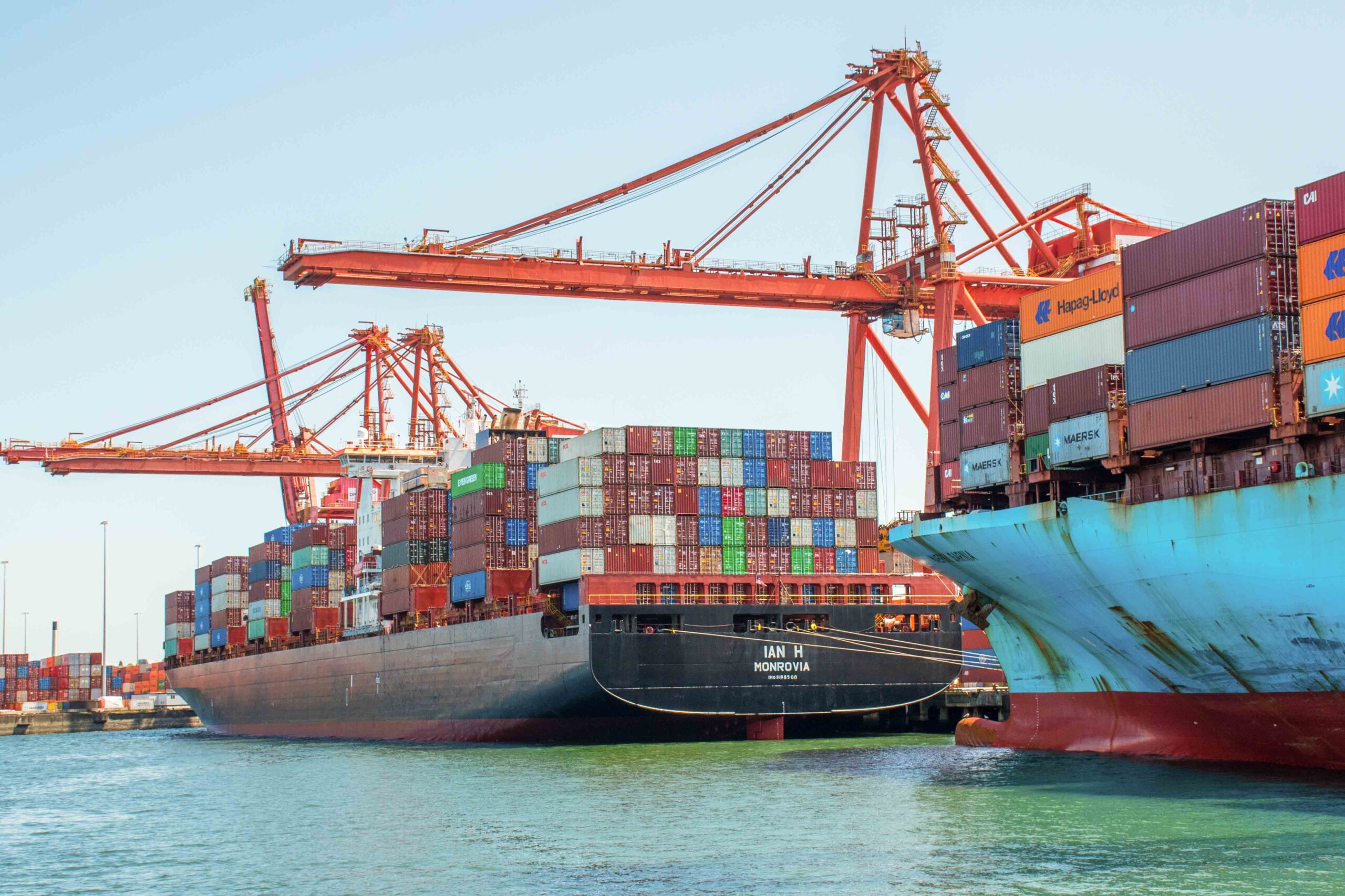 Canada’s merchandise exports fell by three per cent in August to a seasonally adjusted $60.5 billion. This was the second lowest month of the year after April as sales to the U.S. retreated. Imports rose by 0.9 per cent to a seasonally adjusted $66.9 billion during the month. Consequently, the trade deficit grew to $6.3 billion, down from a revised $3.8 billion in July. …The decline was led by a 21.2 per cent drop in forestry products and a 12.5 per cent decline in energy products. The steep decline in forestry products in August 2025 followed the increase of anti-dumping and countervailing duty rates on Canadian softwood lumber that took effect in the U.S. in late July and early August. Section 232 tariffs on lumber in effect in October will be a further headwind. …Year-to-date exports are down slightly (-0.1 per cent) with lower forestry products and building and packaging materials exports (-6.1 per cent)
Canada’s merchandise exports fell by three per cent in August to a seasonally adjusted $60.5 billion. This was the second lowest month of the year after April as sales to the U.S. retreated. Imports rose by 0.9 per cent to a seasonally adjusted $66.9 billion during the month. Consequently, the trade deficit grew to $6.3 billion, down from a revised $3.8 billion in July. …The decline was led by a 21.2 per cent drop in forestry products and a 12.5 per cent decline in energy products. The steep decline in forestry products in August 2025 followed the increase of anti-dumping and countervailing duty rates on Canadian softwood lumber that took effect in the U.S. in late July and early August. Section 232 tariffs on lumber in effect in October will be a further headwind. …Year-to-date exports are down slightly (-0.1 per cent) with lower forestry products and building and packaging materials exports (-6.1 per cent)




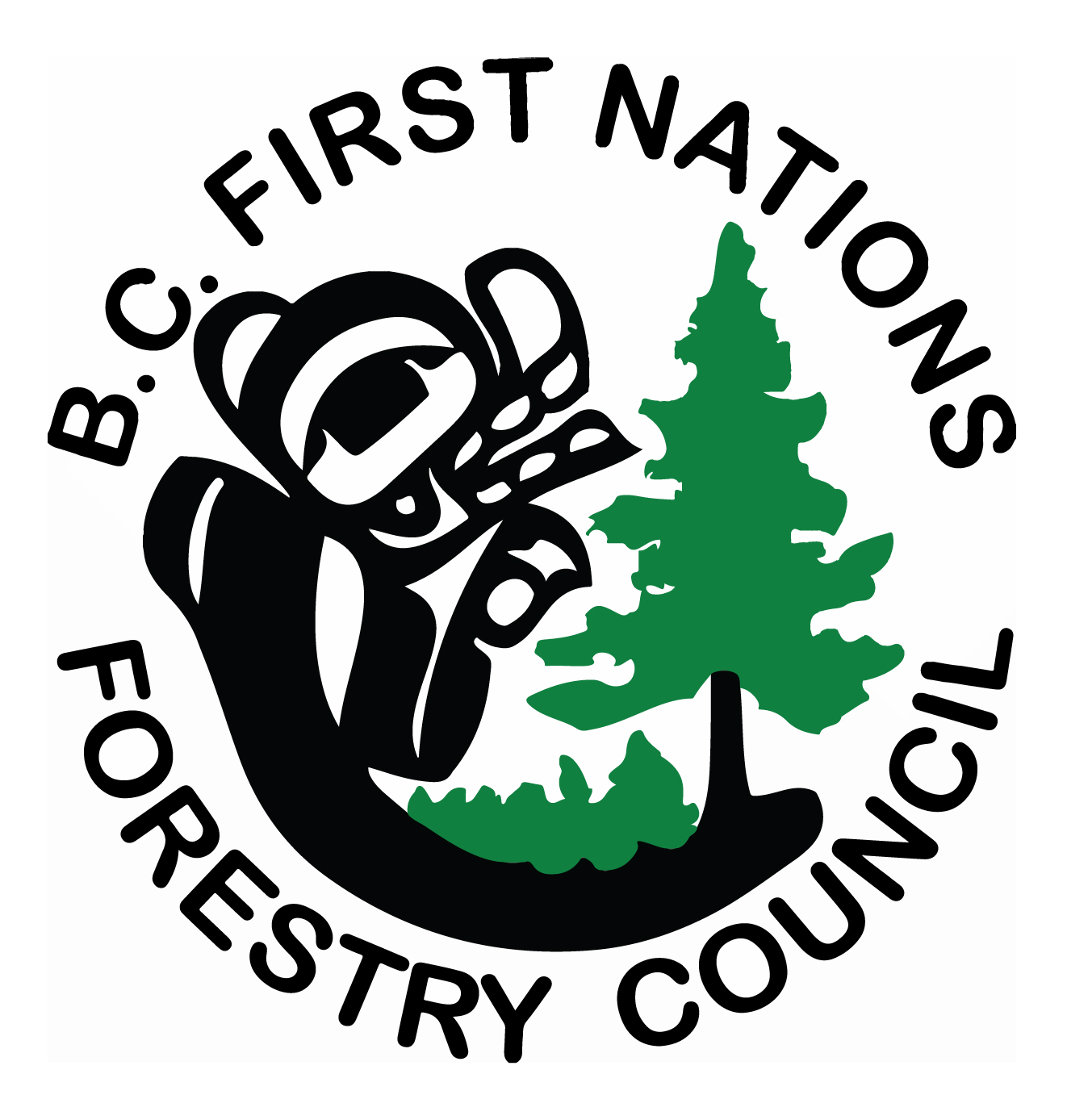 NASHVILLE, Tenn.– LP Building Solutions (LP) announced the continuation of its partnership with the [US based] Forest Workforce Training Institute’s ForestryWorks® program and a new collaboration with the [British Columbia, Canada] First Nations Forestry Council. Both initiatives aim to develop the next generation of forestry professionals and advance sustainable forest management across North America. …“Programs like ForestryWorks and First Nations Forestry Council help ensure forests remain healthy and productive while supporting the future of sustainable forestry,” said LP Chair and CEO Brad Southern. “By investing in tomorrow’s workforce, we’re also investing in the continued success of renewable, high-performance building solutions.” …“We’re pleased to welcome LP Building Solutions as a program partner in advancing Indigenous participation in forestry through the Indigenous Forestry Scholarship Program,” said BC First Nations Forestry Council CEO Lennard (Suxʷsxʷwels) Joe.
NASHVILLE, Tenn.– LP Building Solutions (LP) announced the continuation of its partnership with the [US based] Forest Workforce Training Institute’s ForestryWorks® program and a new collaboration with the [British Columbia, Canada] First Nations Forestry Council. Both initiatives aim to develop the next generation of forestry professionals and advance sustainable forest management across North America. …“Programs like ForestryWorks and First Nations Forestry Council help ensure forests remain healthy and productive while supporting the future of sustainable forestry,” said LP Chair and CEO Brad Southern. “By investing in tomorrow’s workforce, we’re also investing in the continued success of renewable, high-performance building solutions.” …“We’re pleased to welcome LP Building Solutions as a program partner in advancing Indigenous participation in forestry through the Indigenous Forestry Scholarship Program,” said BC First Nations Forestry Council CEO Lennard (Suxʷsxʷwels) Joe. 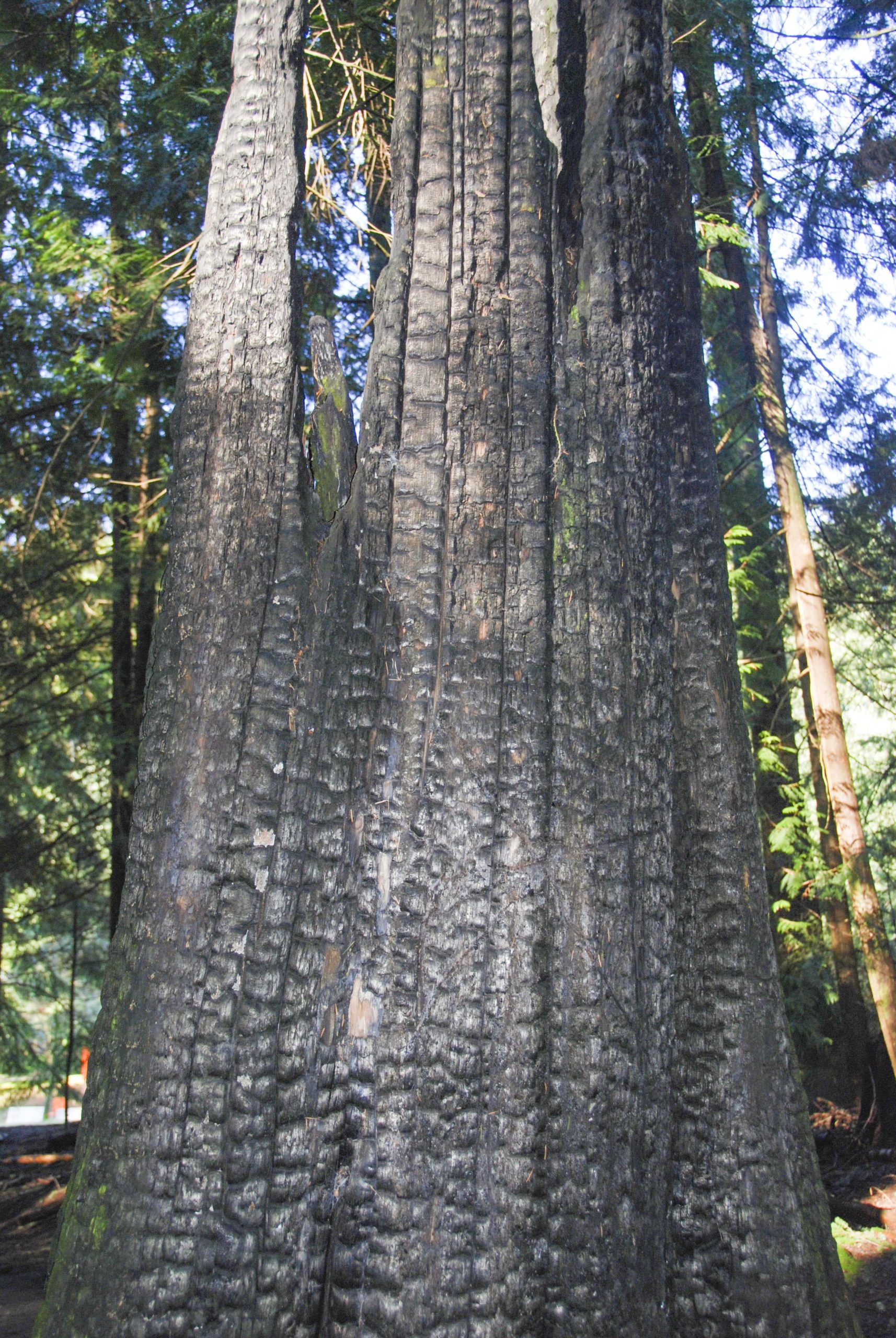 Two new reports on the July 2024 devastating wildfire in Jasper, Alta., confirm the blaze was caused by lightning and accelerated by “tornado-force fire-generated” winds and dry conditions. The fire — three separate blazes that merged into one — destroyed a third of the community’s structures. It forced 25,000 residents and displaced an estimated 2,000 people. The reports, commissioned by Parks Canada, say efforts to reduce fuel for wildfires, including prescribed burns, helped mitigate the blaze. But one of the reports, which looks at how the fire formed and developed, says more burns and other attempts to reduce fuel would have been beneficial, since the fire began in an area south of town that had not burned or been treated in over a century. …The reports come after the town published its own fire report earlier this year, leading to controversy with the province as it said Premier Danielle Smith’s government caused command challenges in the fire response.
Two new reports on the July 2024 devastating wildfire in Jasper, Alta., confirm the blaze was caused by lightning and accelerated by “tornado-force fire-generated” winds and dry conditions. The fire — three separate blazes that merged into one — destroyed a third of the community’s structures. It forced 25,000 residents and displaced an estimated 2,000 people. The reports, commissioned by Parks Canada, say efforts to reduce fuel for wildfires, including prescribed burns, helped mitigate the blaze. But one of the reports, which looks at how the fire formed and developed, says more burns and other attempts to reduce fuel would have been beneficial, since the fire began in an area south of town that had not burned or been treated in over a century. …The reports come after the town published its own fire report earlier this year, leading to controversy with the province as it said Premier Danielle Smith’s government caused command challenges in the fire response. CAMPBELL RIVER – The Forest Practices Board will conduct an audit of Aat’uu Forestry Limited Partnership’s Forest Licence A19236 in the Campbell River Natural Resource District of the North Island Timber Supply Area, starting Monday, Oct. 20, 2025. The audit will examine whether forestry activities carried out between Oct. 1, 2023, and Oct. 24, 2025, comply with the Forest and Range Practices Act and the Wildfire Act. …Forest Licence A19236 is held by Aat’uu Forestry Limited Partnership, a company owned by the Ehattesaht First Nation, and is managed by Strategic Natural Resource Group from its Campbell River office. The licence covers an operating area of about 60,000 hectares, of which Aat’uu currently manages an allowable annual cut of approximately 50,000 cubic metres. The audit area is on the west coast of Vancouver Island, about 70 kilometres south of Port McNeill, near the community of Zeballos, within Ehattesaht territory and neighbouring territories of the Nuchatlaht and Ka:’yu:’k’t’h’/Che:k:tles7et’h’ Nations.
CAMPBELL RIVER – The Forest Practices Board will conduct an audit of Aat’uu Forestry Limited Partnership’s Forest Licence A19236 in the Campbell River Natural Resource District of the North Island Timber Supply Area, starting Monday, Oct. 20, 2025. The audit will examine whether forestry activities carried out between Oct. 1, 2023, and Oct. 24, 2025, comply with the Forest and Range Practices Act and the Wildfire Act. …Forest Licence A19236 is held by Aat’uu Forestry Limited Partnership, a company owned by the Ehattesaht First Nation, and is managed by Strategic Natural Resource Group from its Campbell River office. The licence covers an operating area of about 60,000 hectares, of which Aat’uu currently manages an allowable annual cut of approximately 50,000 cubic metres. The audit area is on the west coast of Vancouver Island, about 70 kilometres south of Port McNeill, near the community of Zeballos, within Ehattesaht territory and neighbouring territories of the Nuchatlaht and Ka:’yu:’k’t’h’/Che:k:tles7et’h’ Nations.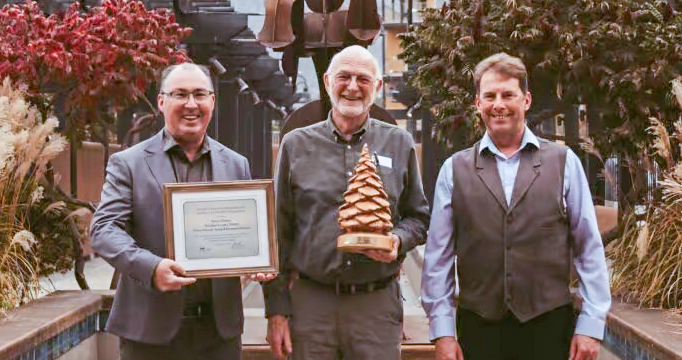
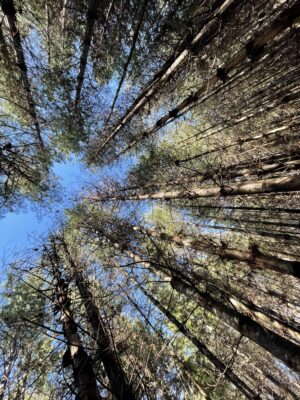 The bipartisan Fix Our Forests Act passed out of the Senate Agriculture Committee on Tuesday morning, marking the first advancement of the bill since it previously stalled in committees under both the Biden and the previous Trump administration. The Act would create an interagency Fireshed Center focused on wildfire prediction and tracking, establish fireshed management areas in forests with high wildfire risks, and expedite the review of wildfire-related forest management projects under the National Environmental Policy Act. The act has gained support from lawmakers on both sides of the aisle, along with numerous environmental and wildfire-focused organizations. Critics of the Act claim it would further open up
The bipartisan Fix Our Forests Act passed out of the Senate Agriculture Committee on Tuesday morning, marking the first advancement of the bill since it previously stalled in committees under both the Biden and the previous Trump administration. The Act would create an interagency Fireshed Center focused on wildfire prediction and tracking, establish fireshed management areas in forests with high wildfire risks, and expedite the review of wildfire-related forest management projects under the National Environmental Policy Act. The act has gained support from lawmakers on both sides of the aisle, along with numerous environmental and wildfire-focused organizations. Critics of the Act claim it would further open up 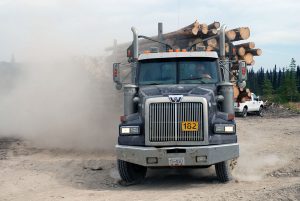 CLANCY, Montana — Healthy forests depend on a strong forest products industry. Sawmills help support thousands of Montana jobs, reduce wildfire risks, and provide a renewable resource. Despite recent mill closures in Missoula and Seeley Lake, Marks Lumber in Clancy continues to carry on. …Both Roseburg Forest Products in Missoula and Pyramid Mountain Lumber in Seeley Lake closed last year. Marks Lumber has been open for 36 years, and they have adapted to industry changes before. “ …In light of the recent closures, they have made some changes, including shifting to more board production (processed wood) rather than the raw tree, which is more expensive to manufacture, and slowing down on how much logging they do. Marks Lumber also had to change where their sawdust and chips go. Roseburg used to buy that material, but now they send them to Weyerhaeuser Forest Products in Columbia Falls.
CLANCY, Montana — Healthy forests depend on a strong forest products industry. Sawmills help support thousands of Montana jobs, reduce wildfire risks, and provide a renewable resource. Despite recent mill closures in Missoula and Seeley Lake, Marks Lumber in Clancy continues to carry on. …Both Roseburg Forest Products in Missoula and Pyramid Mountain Lumber in Seeley Lake closed last year. Marks Lumber has been open for 36 years, and they have adapted to industry changes before. “ …In light of the recent closures, they have made some changes, including shifting to more board production (processed wood) rather than the raw tree, which is more expensive to manufacture, and slowing down on how much logging they do. Marks Lumber also had to change where their sawdust and chips go. Roseburg used to buy that material, but now they send them to Weyerhaeuser Forest Products in Columbia Falls.


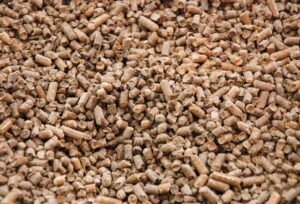 PASCAGOULA, Mississippi — A fire is burning inside one of the wood pellet domes at the Port of Pascagoula. The fire started Monday afternoon inside one of the two Enviva domes at the port. Jackson County Emergency Management Director Earl Etheridge said there is no danger of explosion. Jackson County firefighters are on scene to assist Enviva and port crews. The fire started Monday afternoon inside one of the two Enviva domes at the port. …Etheridge says that Enviva is injecting the dome with pressurized nitrogen to suppress the fire. The fire is contained to the dome. Crews are working to offload the 20,000 metric tons of wood pellets.
PASCAGOULA, Mississippi — A fire is burning inside one of the wood pellet domes at the Port of Pascagoula. The fire started Monday afternoon inside one of the two Enviva domes at the port. Jackson County Emergency Management Director Earl Etheridge said there is no danger of explosion. Jackson County firefighters are on scene to assist Enviva and port crews. The fire started Monday afternoon inside one of the two Enviva domes at the port. …Etheridge says that Enviva is injecting the dome with pressurized nitrogen to suppress the fire. The fire is contained to the dome. Crews are working to offload the 20,000 metric tons of wood pellets. 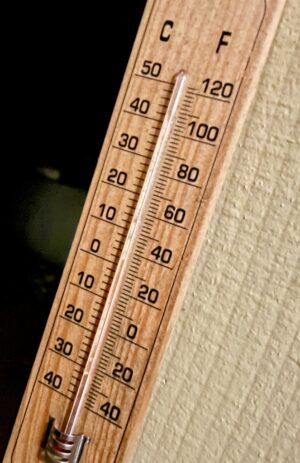 Google has announced plans to address greenhouse gases beyond carbon dioxide by purchasing credits to support the emerging market for removing short-lived but highly potent “superpollutants.” The company will buy up to 25,000 tonnes of superpollutant-destruction credits by 2030 from two organisations, Recoolit and Cool Effect—equivalent to about one million tonnes of CO₂ removal over the long term. While carbon dioxide remains a key focus, Google said gases such as methane, hydrofluorocarbons (HFCs), chlorofluorocarbons (CFCs) and nitrous oxide have a much greater near-term warming impact. “It’s the right thing to do for the planet,” said Randy Spock, Google’s carbon credits and removals lead. “CO₂ is obviously very important… but if we think only about CO₂, then we’re just looking at one piece of the puzzle.” …Sam Abernethy, a climate scientist at Spark Climate Solutions, said: “Superpollutants only get a few percent of climate finance… that’s a misallocation given their importance.”
Google has announced plans to address greenhouse gases beyond carbon dioxide by purchasing credits to support the emerging market for removing short-lived but highly potent “superpollutants.” The company will buy up to 25,000 tonnes of superpollutant-destruction credits by 2030 from two organisations, Recoolit and Cool Effect—equivalent to about one million tonnes of CO₂ removal over the long term. While carbon dioxide remains a key focus, Google said gases such as methane, hydrofluorocarbons (HFCs), chlorofluorocarbons (CFCs) and nitrous oxide have a much greater near-term warming impact. “It’s the right thing to do for the planet,” said Randy Spock, Google’s carbon credits and removals lead. “CO₂ is obviously very important… but if we think only about CO₂, then we’re just looking at one piece of the puzzle.” …Sam Abernethy, a climate scientist at Spark Climate Solutions, said: “Superpollutants only get a few percent of climate finance… that’s a misallocation given their importance.” Atmospheric carbon dioxide (CO₂) rose faster in 2024 than in any year since records began. …Our new satellite analysis shows that the Amazon rainforest is struggling to keep up. And worryingly, the satellite that made this discovery could soon be switched off [due to proposed NASA budget cuts.]. Systematic measurements of CO₂ in the atmosphere began in the late 1950s. …Across six decades of measurements, CO₂ has gradually increased. …The largest change was over the Amazon, where much less CO₂ is being absorbed. Similar slowdowns also appeared over southern Africa and southeast Asia, parts of Australia, the eastern US, Alaska and western Russia. Conversely, we detected more carbon being absorbed over western Europe, the US and central Canada. …It’s not yet clear whether 2023-24 is a short-term blip or an early sign of a long-term shift. But evidence points to an increasingly fragile situation, as tropical forests are stressed by hot and dry conditions.
Atmospheric carbon dioxide (CO₂) rose faster in 2024 than in any year since records began. …Our new satellite analysis shows that the Amazon rainforest is struggling to keep up. And worryingly, the satellite that made this discovery could soon be switched off [due to proposed NASA budget cuts.]. Systematic measurements of CO₂ in the atmosphere began in the late 1950s. …Across six decades of measurements, CO₂ has gradually increased. …The largest change was over the Amazon, where much less CO₂ is being absorbed. Similar slowdowns also appeared over southern Africa and southeast Asia, parts of Australia, the eastern US, Alaska and western Russia. Conversely, we detected more carbon being absorbed over western Europe, the US and central Canada. …It’s not yet clear whether 2023-24 is a short-term blip or an early sign of a long-term shift. But evidence points to an increasingly fragile situation, as tropical forests are stressed by hot and dry conditions.